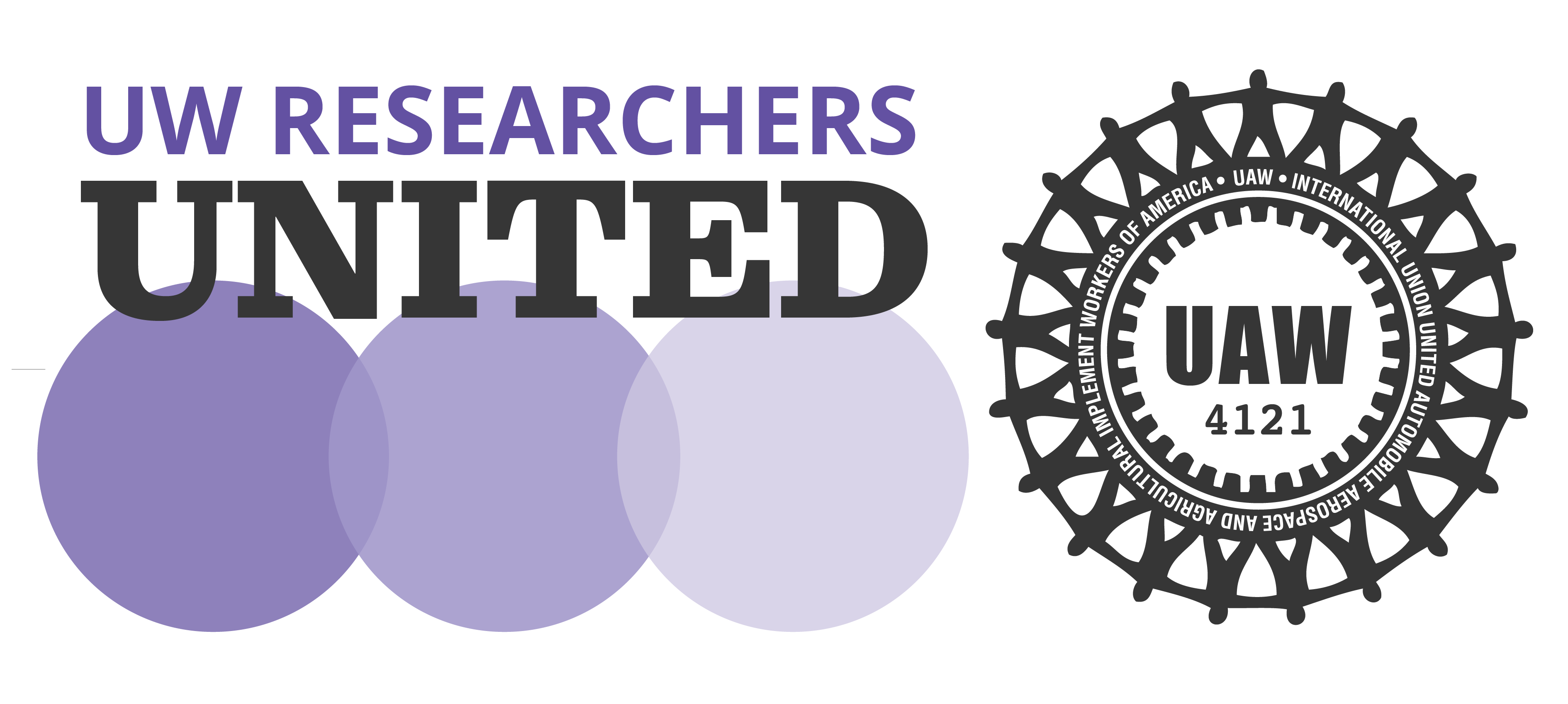February 28, 2023
Bargaining Update
Yesterday we met UW Admin at the bargaining table for our 14th bargaining session. As has become routine, UW Admin arrived at the meeting without any counters to our previous proposals. Below is an overview of some of the proposals we exchanged:
- Overtime (OT)– We proposed a pre-approved block of 15 OT hours per week for OT eligible employees. This would allow for the flexibility our work requires. This article also outlines policies around fieldwork, including a 15% temporary pay increase and a guarantee of 8 paid hours minimum per day while employees are in field work status.
- Housing– Previously, UW Admin struck our housing proposal in its entirety. Yesterday we made a counter-proposal that UW should provide a housing subsidy that would ensure no RSE is paying more than 30% of their salary toward housing.
- Exit Interviews– In yesterday’s proposal, UW Admin communicated that they are unwilling to have any standardized exit interview questions/topics for employee exit interviews because this is too administratively burdensome. We made a counter proposal accepting this lack of standardization, but requiring that UW provide the union exit interview data on an annual basis.
- Transportation and Commute Reduction– UW re-asserted a past proposal of theirs and let us know that the only transit benefit they are willing to provide is the UPASS; they are not willing to provide any money toward RSEs who are bike commuting. UW’s lead negotiator then gave us a lecture about how we should be grateful for the additional transit benefits they are already agreeing to (listing the subsidized UPASS in our contract, having a RSE representative on the transit committee, and access to showers on campus).
In discussing the overtime article, members of UW’s bargaining committee expressed great concern over the idea of pre-approved overtime for eligible RSE’s; they doubted that OT eligible employees would need to work more than 40 hours a week without this being planned and approved in advance. Several members of our bargaining team shared personal experiences of needing to stay late or bring work home when completion of workloads are just not achievable in a 40-hour week. We invite you to attend a few hours (or a full day) of an upcoming bargaining session; it’s meaningful to have a diversity of RSEs available to share personal examples with UW Admin when these sorts of questions arise. Despite bargaining together since August, UW Admin continues to demonstrate that they don’t understand the day-to-day realities of our jobs as RSEs. We invite you to attend an upcoming session, and when appropriate, to share an example of how a proposal would directly impact your life and your research.
Our next bargaining session is this coming Monday, March 6th. Caucus starts at 8am. Please RSVP here. You can also see other upcoming March sessions at this link.
Also, a reminder that you can view all exchanged proposals at our Bargaining Center.
Unfair Labor Practice Charge
There will be a pre-hearing conference between our legal team and UW’s on Monday, March 6th at 9am. We will provide updates when we have them.
Stay up to date with our latest news and actions by following our social media accounts: Twitter, Instagram, and Facebook, and also, reach out if you have any questions.
In solidarity,
UW Researchers United Bargaining Committee
Thaddeus Armstrong, Laboratory Medicine and Pathology
Nick Bolten, Computer Science
Jai Broome, Medical Genetics
Erin Carll, Center for Evaluation & Research for STEM Equity
Morgan Crotta, Department of Comparative Medicine
Iván Cruz, Biological Structure
Abby Gambrill, Physiology & Biophysics
Jay Mas Gilvydis, I-TECH/Global Health
Anya Kalata, Laboratory Medicine and Pathology
Julia Kobelt, Aquatic and Fishery Sciences
Katherine Lasdin, Aquatic and Fishery Sciences
Ellen MacLachlan, I-TECH/Global Health
Katie Osterhage, Family Medicine
Deborah Nemens, School of Environmental and Forest Science
Van Redila, Otolaryngology
Annelise Smith, Center for the Study of Health and Risk Behaviors
Galen Stewart, Laboratory Medicine and Pathology
Kambiz Tavabi, I-LABS
Jacob Tietsort, Comparative Medicine
Stacey Wedlake, Information School
Ryan Will, Laboratory Medicine and Pathology
Tricia Wu, Biological Structure
